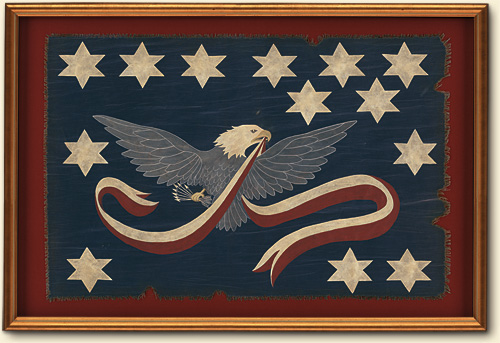Back in 2007 or 2008, I wrote how I was upset with the current Tea Party Movement's (TPM) weak interpretation of History. The TPM would be better served had they latched onto different special events that more accurately portray their anger, distrust and frustration with the status quo: Shays' Rebellion or the Whiskey Rebellion (both having libertarian ideals at heart, and both having the word "rebellion" in them, which seems to be popular these days).
I've noticed that within the past year, others have inadvertently jumped on my little bandwagon. Please note that I am not a member of the TPM, but harbor no ill will toward them. In fact, I'm elated that people are starting to care about politics again. My complaint is only with the name.
There are those who would quibble with my reasoning. What's in a name? We are describing the spirit of the original tea party, which the TPM encapsulates today!
For years after the destruction of tea in Boston Harbor, no one discussed the event. It was too radical, and made our forebears uncomfortable. There was little real pride in what they had done, and certainly no bragging in public houses; what pride there was paled in comparison to the fighting of the Revolution. Today's TPM is proud. Attempts at marginalizing this vocal political group failed, and the TPM is mentioned incessantly across the media spectrum. It will not soon be swept under the rug of ephemera as the original destruction of tea was.
If by "spirit of the original tea party" the TPM means to say that it supports the manipulation of the emotions of the populace by wealthy people with business interests, then yes. No true libertarian would agree with this, though. The spirit of Shay's Rebellion shines through. It began as a local movement of poorly treated war veterans/farmers, who were tired of being taken advantage of by business interests. Samuel Adams (a main instigator of the destruction of tea in Boston) despised this rebellion of commoners, and wrote a Riot Act, which effectively called "forth the Militia to execute the laws of the Union, suppress insurrections and repel invasions." He also advocated for the suspension of habeas corpus, so that the frustrated farmers and veterans could be kept in jail until this little issue blew over. The wealthy in our young country couldn't bear indignant poor people complaining about their rights. Granted, these poor couldn't pay their debts and Big Business was confiscating their lands; however, these veterans served unpaid* during the Revolution, so lacked the money to pay their debts when the war concluded (if you're stuck two states away at a military encampment, you're not earning money on your farm).
One of the TPM's favorite quotes is from Thomas Jefferson:
"The tree of liberty must be refreshed from time to time with the blood of patriots and tyrants. It is its natural manure."
This quote had nothing to do with the destruction of tea in Boston Harbor; rather, Jefferson wrote that in response to Shays' Rebellion.
Other libertarians may be more inspired by the Whiskey Rebellion (1794), which was caused by the first tax imposed on a domestic product that substantially supported Big Business and hurt local distillers (whether or not there was a conspiracy against small businesses has not been proven). Significantly, this also led to regular citizens' growing resentment toward an East Coast that simply failed to understand their lifestyle. As historian/author Thomas Slaughter wrote, the people began equating "easterners with wealth, power and absentee landlordism, and to see local enforcers of eastern laws as self-interested lackeys of eastern elites." Replace "eastern" with "Washington," and you'll notice this is much the language of the TPM today. Or simply refer to historian Terry Bouton** when he simply calls the Whiskey Rebels “Regulators, citizens fed up with selfish elitist governmental economic and social policies." Sound familiar?
It is beyond me why a movement that views itself as here-to-stay chose to name themselves after a single night in history that was nearly wiped from public memory shortly after it occurred. The indignant, fed-up spirit of the TPM movement is pervasive and appears to be lasting. Is "rebellion" not a better word?
Not to mention if they ditch the name "Tea Party," they won't have to worry about all those "tea bagger" comments.
*Today soldiers freak out and post all over FB if there's even a hint they'll miss one month of pay. During the Revolutionary War, soldiers commonly weren't paid, and during the winters didn't even have necessary supplies. It was a different time, I suppose.
**Terry Bouton, “Tying Up the Revolution: Money, Power, and the Regulation in Pennsylvania, 1765-1800” (Ph.D. Dissertation, Duke University, 1996).






This is such a fantastic site! Thank you for all your time and effort in producing this interesting site!
ReplyDeleteShays Rebellion would be a good symbol if it weren't so obscure. You'd have to read all the way to page 100 of most U.S. History books to know about it.
ReplyDelete